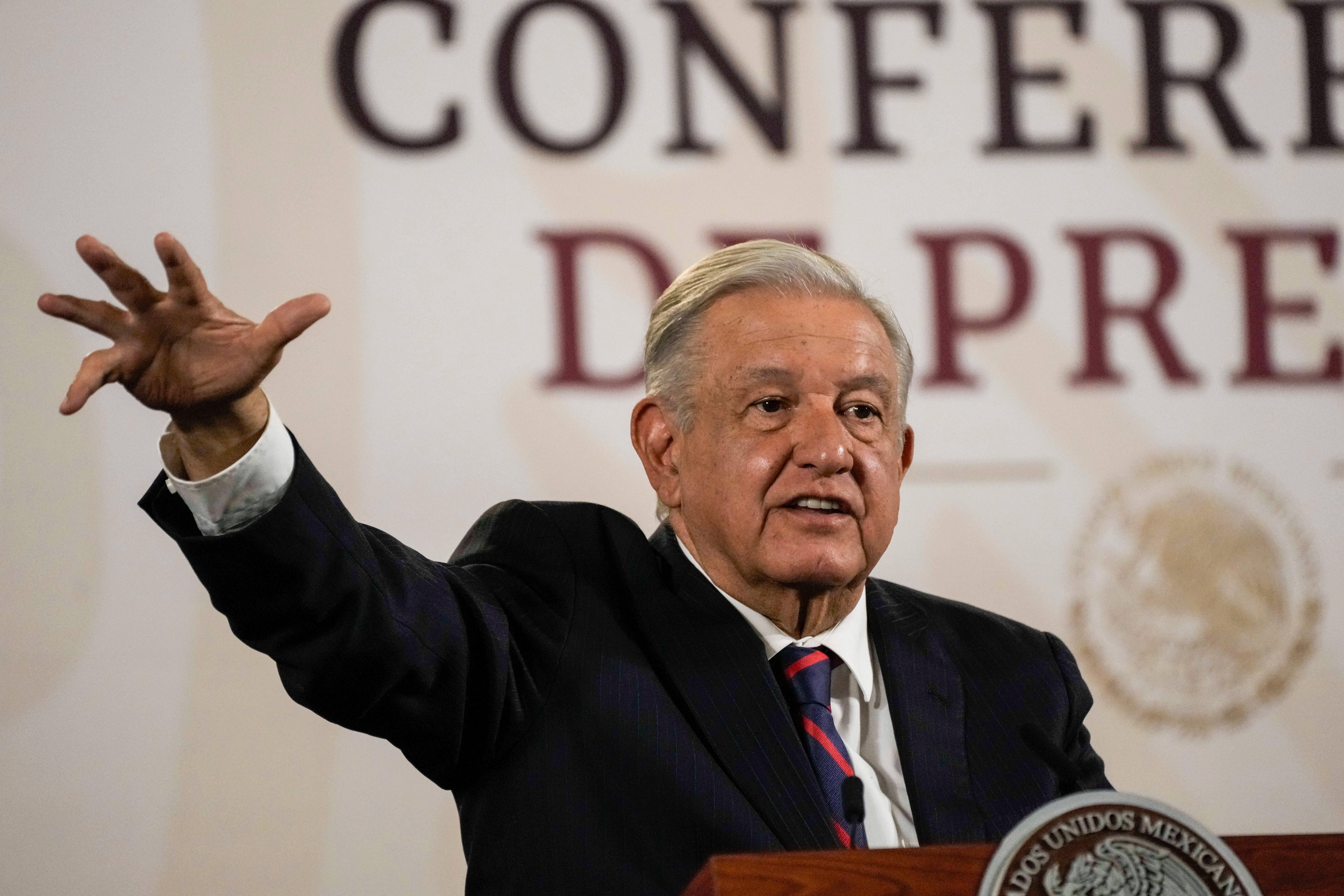The head of Mexico's detective service says his country is the 'champion' of fentanyl production
The head of Mexico's detective service has acknowledged the country is “the champion” of fentanyl production, which appears to run counter to past statements by President Andrés Manuel López Obrador

The head of Mexico’s detective service acknowledged Tuesday that the country is “the champion” of fentanyl production, something that appears to run counter to past statements by President Andrés Manuel López Obrador.
López Obrador has hotly denied in the past that any fentanyl is produced in Mexico, saying Mexican cartels only press it into pills or add finishing touches.
But Felipe de Jesus Gallo, the head of Mexico’s Criminal Investigation Agency, said that since the 1990s “Mexico has been the champion of methamphetamine production, and now fentanyl.” He spoke at a U.S.-Mexico conference on synthetic drugs in Mexico City.
Experts agree that cartels in Mexico use precursor chemicals from China and India to make the synthetic opioid and smuggle it into the United States, where it causes about 70,000 overdose deaths annually.
While fentanyl is not widely abused in Mexico, methamphetamine addiction is commonplace.
Gallo said that Mexican cartels have launched industrial-scale production of meth in many states throughout the country and now export the drug around the world.
“Believe me, methamphetamine production has become industrialized, it's not just in the mountains anymore,” Gallo said. “We now expect to see (drug) laboratories not just in the mountains of Sinaloa and Sonora, but in Hidalgo as well, Puebla, and also in Jalisco."
He was apparently referring to thousands of drug labs detected in previous years in the hills and scrublands around Culiacan, the capital of the northern state of Sinaloa. Those clandestine, rural production sites were often bare-bones, improvised labs covered with tree branches and tarpaulins.
Now, the meth trade has become so lucrative and so sophisticated that Mexican meth is exported as far away as Hong Kong or Australia, and the cartels have found ways to avoid detection of their drug money.
“The business models have become very innovative, or as old and antiquated as barter; ‘I’ll trade you precursor chemicals for meth,' to avoid leaving a money trail,” Gallo said.
There is little question that drug production goes on at a huge scale in Mexico.
In February, Mexico's Navy seized over 45 tons of methamphetamine at the biggest drug lab found during the current administration. The lab was in Quiriego, a township in a remote part of the northern border state of Sonora.
The 91,000 pounds (41,310 kilograms) of meth found there was more than half of the 162,000 pounds of the drug Mexico has seized so far this year.
Fentanyl production is also huge, though because it is a more potent drug, the volume is smaller.
A year ago, soldiers seized more than a half-million fentanyl pills in Culiacan in what the army at the time described as the largest synthetic drug lab found to date.
Soldiers found almost 630,000 pills that appeared to contain fentanyl, the army said. They also reported seizing 282 pounds (128 kilograms) of powdered fentanyl and about 220 pounds (100 kilograms) of suspected methamphetamine.
López Obrador, who took office on Dec. 1 2018, also claims that Mexicans are culturally immune to drug addiction.
Bookmark popover
Removed from bookmarks